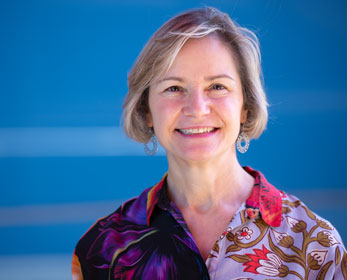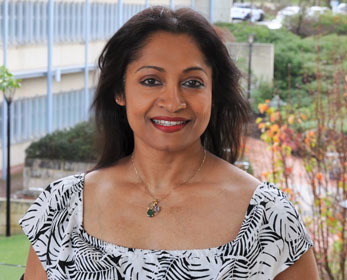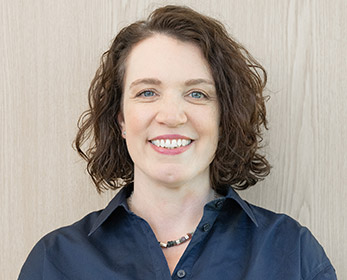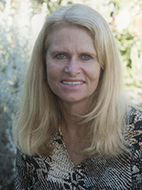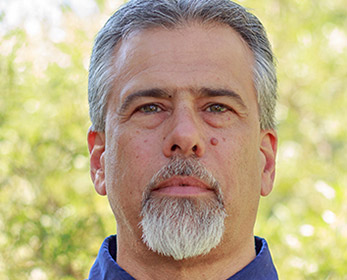Edith Cowan University (ECU) has been awarded more than $1.4M in funding to improve social connections and access to services for people from culturally and linguistically diverse (CaLD) backgrounds living with dementia, and their caregivers.
Chief Investigator ECU Professor Loretta Baldassar said the National Health and Medical Research Council (NHMRC) 2022 Medical Research Future Fund grant will enable a research project, ‘BEFRIENDING with GENIE’, that employs and tests proven interventions that focus on increasing social support networks and improving access to and knowledge about services to help reduce loneliness and its health implications.
Professor Baldassar explains there is currently a critical lack of programs that adequately serve these older migrants.
"Almost half a million Australians are currently living with dementia and one in three of these people were born overseas. Dementia is currently the leading cause of death in Australian women," she said.
"People from migrant backgrounds living with dementia, and their caregivers, often have less knowledge about, access to, and uptake of medical and health services, including prevention activities that support their social interaction.
"This can put them at increased risk of significantly reduced social connection and isolation, which in turn increases their risk of disease and mortality.
Support for 'out of sight out of mind' caregivers
Professor Baldassar said the research was two-fold, in that it would address the needs of both the person living with dementia and their caregiver.
"It is critically important that these out of sight out of mind caregivers are recognised for the essential support they provide people living with chronic conditions, and are in turn supported themselves," she said.
"Family caregivers from migrant backgrounds often have the additional care burden of managing English language and other cultural barriers to service access for themselves and their loved ones."
Evidenced importance of making friends
ECU researchers will innovatively combine two evidence-based interventions called ‘BEFRIENDING’, based on a successful study led by the National Ageing Research Institute and ‘GENIE’, developed by implementation health scientists at Southampton University.
'BEFRIENDING' is a program in which trained facilitators meet with participants weekly for one-hour over an eight-week period to share informal conversations.
'GENIE' is an online tool that supports participants to expand their social networks and engage with services based on their interests and goals. It also consists of a database of services and activities tailored to participants’ interests and needs and a network mapping tool that measures their social supports over time.
Researchers will collaborate with partner organisations and trained facilitators with appropriate language and cultural knowledge to deliver the program to 100 participants and caregivers from four main language groups of older Australians: Italian, Chinese, Vietnamese and South Asian.
Meeting a critical need
Professor Baldassar said both the findings of the recent Royal Commission into Aged Care Quality and Standards, and the research literature, showed that very few programs meet the needs of older people from migrant backgrounds in general.
"This research is so important because there is such a lack of support programs that adequately serve older migrants and their families living with dementia," she said.
"We expect the study will deliver a significant and measurable decrease in loneliness and increase in social connections of participants, as well as increase their knowledge about, and access to, available services.
"In addition, it will provide important data about service gaps and needs, as well as testing the usability of the program for service providers so that we can share our findings and adapt the program for use across Australia and beyond."
Professor Baldassar will lead the research team, which includes six researchers from ECU, including five from the School of Arts and Humanities, along with leading national and international researchers from the National Ageing Research Institute, The University of Sydney, University of Tasmania, University of Sydney, Swinburne University of Technology, University of Wollongong, University of Melbourne, Curtin, UWA, University of Southampton UK, City University of Hong Kong and Association for Culturally Appropriate Services, as well as several aged care service providers.
The ECU research team is part of ECU’s Social Ageing (SAGE) Futures Lab whose aim is to deliver a social science approach to ageing that complements the medical model and helps fill gaps, particularly around the importance of social support, social care, family and community networks.
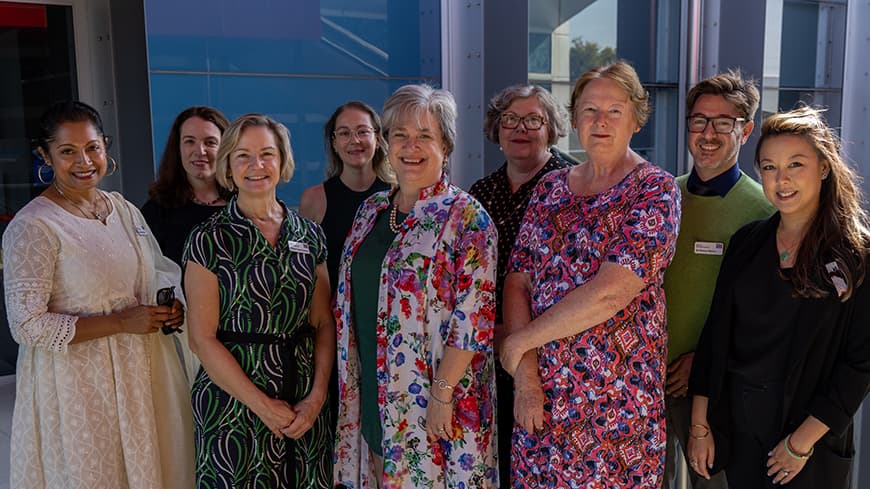 Project Management Group: Front row - Dr Manonita Ghosh (ECU), Professor Loretta Baldassar (ECU), Dr Sanetta du Toit (University of Sydney), Professor Colleen Doyle (National Ageing Research Institute), Dr Anita Goh (National Ageing Research Institute). Back row: Dr Catriona Stevens (ECU), Bronte Jones (ECU), Cristina Thompson (University of Wollongong), Dr Simone Marino (ECU).
Project Management Group: Front row - Dr Manonita Ghosh (ECU), Professor Loretta Baldassar (ECU), Dr Sanetta du Toit (University of Sydney), Professor Colleen Doyle (National Ageing Research Institute), Dr Anita Goh (National Ageing Research Institute). Back row: Dr Catriona Stevens (ECU), Bronte Jones (ECU), Cristina Thompson (University of Wollongong), Dr Simone Marino (ECU).

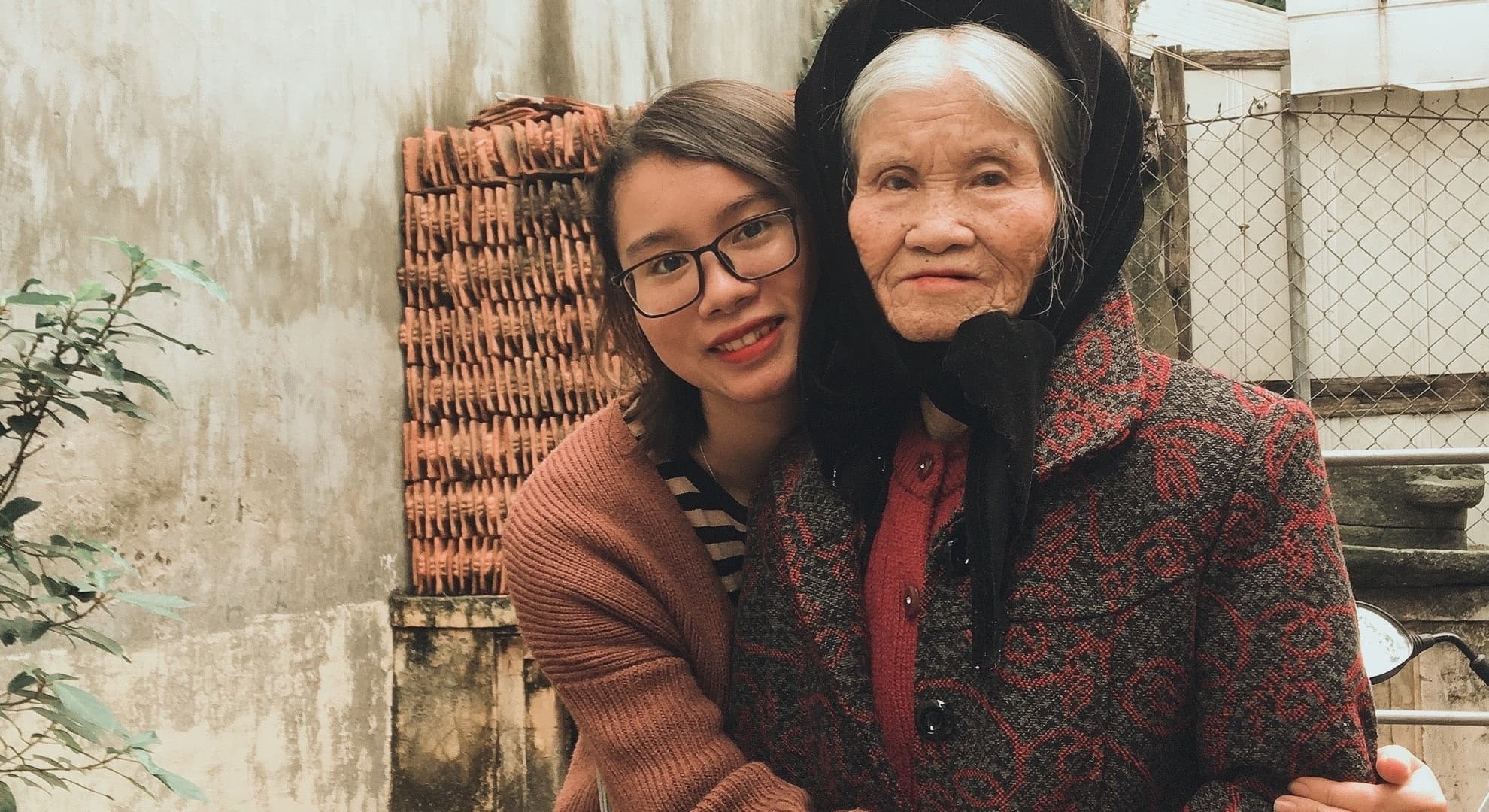 ECU has been awarded more than $1.4M in funding for research to improve social connections and access to services for migrants living with dementia and their families.
ECU has been awarded more than $1.4M in funding for research to improve social connections and access to services for migrants living with dementia and their families.
